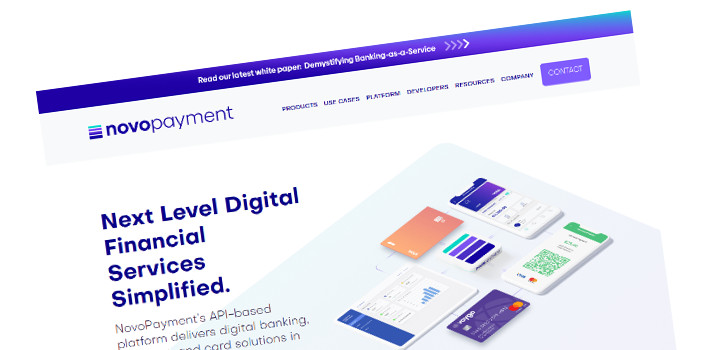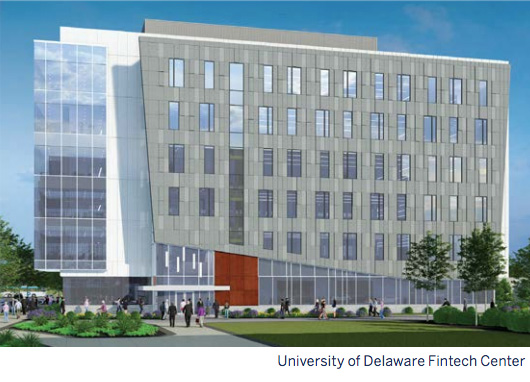Fintech
Register for The 4th Annual Alternative Finance Bar Association Conference
May 12, 2022 The fourth annual Alternative Finance Bar Association conference is BACK IN PERSON. This is the go-to event for and with the industry’s leading attorneys.
The fourth annual Alternative Finance Bar Association conference is BACK IN PERSON. This is the go-to event for and with the industry’s leading attorneys.
Mark your calendars for June 15th and June 16th in New York City and register by emailing Lindsey Rohan at lindsey@lrohanlaw.com. Registration is subject to approval and space availability.
Two-day program includes the following panels:
The State of the Industry: Industry experts discuss pending legislation, case law and market hurdles. They have both a regulatory panel ready to discuss what’s new in Virginia, Utah, NY and California as well as a Courtroom panel ready to discuss the winning and losing case law that has come out in the past year.
Bankruptcy: The aftermath of Chicago v. Fulton, In re Shoot the Moon and other pivotal bankruptcy cases that shape industry practices.
Ethics: Challenges faced by internal counsel and ways to navigate those pressures.
Collections: Trends in the post-COJ, post-COVID era.
Employment/Labor Law: The rise of labor use outside the U.S. What challenges arise from having call centers outside the U.S. Tax implications, oversight and practical benefits/detriments. Post-COVID remote work implications. What you need to be aware of to avoid creating liabilities.
The Art of Arbitration: The importance of a carefully drafted Arbitration Clause and the pro/cons of this venue.
Thinking Ahead: What technologies and market conditions will shape the future of the industry. Broad discussion of Blockchain technology, CRM systems, cannabis and what we can imagine will shape the future of Alternative finance.
WEDNESDAY KEYNOTE: David Picon, Esq. – It is with great pride that David Picon of Proskauer Rose will be the Keynote speaker. For years the AFBA has admired his work from afar. Attendees now have an opportunity to learn directly from David what makes for an unstoppable litigator.
THURSDAY SPECIAL EVENT: AFBA Game Show Mash-Up with the Industry’s Legendary Attorneys. Special Guests you will not want to miss!
Speakers:
- Andrew Smith, Covington & Burlington LLP
- Brian Simon, Hollis Public Affairs
- Jamie Polon, Mavrides Moyal Packman & Sadkin, LLP
- Patrick Siegfried, Rapid Finance
- Natalie Pappas, Rapid Finance
- Keith Ellis, Expansion Capital Group
- Kate Fisher, Hudson Cook LLP
- Cathy Brennan, Hudson Cook LLP
- Blake Sims, Hudson Cook LLP
- Steve Denis, Small Business Finance Association
- Christopher R. Murray, Murray Legal PLLC
- Mark Stout, Padfield & Stout
- Shanna Kaminski, Kaminski Law Group
- Michael W. Davis, DTO Law
- John Viskocil, Fora Financial
- Gabriel Mendelberg, Mendelberg P.C.
- Anthony F. Giuliano, Giuliano Law P.C.
- Jeffrey S. Cianciulli, Weir Greenblatt Pierce LLP
- David Picon, Proskauer Rose
- Jonathan Nelson, Dedicated Financial GBC
- Lindsey Rohan, BasePoint Capital LLC
- Christina Grigorian, Katten; Zach Miller, Burr & Foreman
- Renata Buhkman, Delta Bridge Funding
- Vanessa Petty, Settle
- Alexis Shapiro, Forward Financing
- Jan Owens, Manatt Phelps
- Scott Pearson, Manatt Phelps
- Jesse Michael Carlson, Kapitus
- Robert Zadek, Buchalter
When:
Day 1 – June 15
9:00am – 4:30pm: Offices of Proskauer Rose (includes light breakfast and lunch)
5:30pm – 7:30pm: Cocktails at Dear Irving
Day 2 – June 16
9:30am – 6:00pm: 15 W. 38th Street, 2nd Fl, Sinatra Room (includes light breakfast and lunch)
4:00pm: Wine & Cheese
Register soon, SPACE IS LIMITED!
deBanked is a sponsor of the event. Industry attorneys are highly encouraged to attend.
Large Fintech Companies Helping to Normalize Revenue Based Financing
May 6, 2022 With business increasing for wide-reaching financial technology companies like Square, Paypal, and Shopify, this has brought more attention to revenue-based financing products like the ones they offer. Henry Abenaim, Founder and CEO of Fundingo, said that it brings more businesses to the table.
With business increasing for wide-reaching financial technology companies like Square, Paypal, and Shopify, this has brought more attention to revenue-based financing products like the ones they offer. Henry Abenaim, Founder and CEO of Fundingo, said that it brings more businesses to the table.
“…you sometimes think it’s a small world or small group of merchants, and you really come to realize that it’s huge,” he told deBanked. “And the more they’re serviced, the more they need, the more they grow. So it just feels like there’s just more awareness of the product, and then more merchants that are going to come in demand and ask for it, as well as these bigger players are always going to service only a subset of the businesses.”
At the same time, a greater public awareness of options could tighten margins for certain funding providers. “I think it’s going to make the merchants that are way more bankable… get lower price deals, so it’s going to hurt the margins, it’s going to hurt the profits,” Abenaim commented.
John Bulnes, Vice President of Business Development at Fenix Capital Funding, expressed how it is not yet determined what kind of effect the larger mainstream companies will have on the industry. “I do think it’s something that the larger first position MCA companies may feel the effects of first, because they’re going to be competing more or so with taking away clients from those companies first, as opposed to the companies that are smaller that are doing shorter term deals.”
As these big companies operate with larger capital bases, it may indeed become more difficult for smaller companies to compete.
“… it’s going to be something that’s going to constantly adapt and fluctuate as time goes, but I do see it as an expanding industry… it’s kind of a sign that when you see more commercials and we see these bigger companies jumping into the space, that it is something that’s going to continue to grow,” said Bulnes.
And commercials and ads are definitely increasing. One of the largest online small business lenders in the country was asked about their TV and radio campaigns during their recent quarterly earnings call.
“We’ve definitely been ramping [commercials up] hopefully with a little bit more diligence than OnDeck was running ads three or four years ago,” said David Fisher, CEO of Enova. “But we’ve definitely jump back into kind of broader base advertising in that business and it’s been working really well.”
NovoPayment, Latina-founded BaaS Plans to Expand
April 21, 2022 Novopayment has raised $19 million in Series A financing, led by Fuel Venture Capital and IDC Ventures. The company, which offers digital banking, payment, and card solutions, is planning to grow and expand within current and further US markets while focusing on countries in Latin America and the Caribbean.
Novopayment has raised $19 million in Series A financing, led by Fuel Venture Capital and IDC Ventures. The company, which offers digital banking, payment, and card solutions, is planning to grow and expand within current and further US markets while focusing on countries in Latin America and the Caribbean.
CEO and Co-founder Anabel Perez stated, “We define a digital payment as the simple transfer of value from one payment account to another using a digital service such as a mobile device, POS, or computer.”
With the new funding, NovoPayment plans to continue increasing capabilities, introduce new features and functionalities, heighten security, and capitalize on US market opportunities. To accelerate their expansion of current offices in Mexico, Colombia, Peru, Ecuador, and headquarters in Miami, they are adding over 100 new engineers, business development, and product experts to their team. Austin and San Francisco are the first two spots where the branching out will begin.
“Austin and San Francisco are huge hubs for tech innovation and we want to expand there to ensure we attract the best talent for our operations,” Perez discussed. “As we grow in those markets, we’ll assess if we need more boots on the ground in additional states.”
NovoPayment currently holds a strong placement in the LAC region and works with several US clients and partners. This places the company in the right position to broaden in these markets they already have successful track records in.
“Based on our ongoing discussions with clients, we have special insight into the challenges and technology gaps these markets face, and realize the potential to further connect the Americas with a common banking infrastructure. We will be growing our product offerings to enable new data and money flow solutions to account for the increasingly globalized, cloud-based world of financial services,” Perez explained.
As Miami is the “Latin America capital of the US,” NovoPayment holds an advantage as a native of South Florida with the tech scene gravitating towards this region. Miami has served as a gateway to other markets.
“Unlike other companies that are now playing catch up and rushing to the LatAm market, we have a strong foothold and reputation in 14 markets across the Americas,” said Perez. “Establishing those relationships, and understanding the nuances of each market, requires regional expertise that takes time to build.”
Alchemy’s Lending Tech Has Come to the Small Business Lending Market: Here’s What You Need to Know
April 7, 2022 “We are the salesforce for embedded finance.”
“We are the salesforce for embedded finance.”
Timothy Li, CEO of Alchemy, has launched a financing software for both commercial and small business lenders that can automatically approve applicants through an integrated decision engine. The service offers what he calls a “soup to nuts” digital lending platform — offering lines of credit, installment loans, and even loan servicing.
For the past six years, Li has been building a suite of products for those who want to sell financing. He compared his product to what many companies are now offering in the form of Buy Now Pay Later. As his service began to grow, Li realized there was an “extension” of potential with his service.
“[The] extension of this is that some of the small businesses also happened to be small business lenders,” he said.
According to him, he created the service not as an idea of innovation, but to meet a growing demand from his users. “I heard from all of the small business lenders in the New York area,” said Li. “They said ‘Tim, could you augment or come up with a piece of software fully automated for us to use’”?
Although it took some time, Li said this recent announcement is what the lenders that came to him years ago were looking for. “I said well, we’re almost there, give me a year or two to kind of really properly do it right. So that’s what we’ve done.”
In what he refers to as “private labeled” software, Alchemy’s Lending SaaS (or Lending-as-a-Service) allows merchants and lenders alike to operate a fully branded and operational lending platform with a full suite of financial products. Customers range from tattoo removal companies to lenders, to companies that have now grown to become publicly traded.
The ability to literally send Alchemy a JPEG of some branding and marketing and becoming on online lender is as easy as just that. “Anybody can put their label on and have [their lending platform] up and going in a matter of weeks,” said Li.
When speaking about the role ISO’s play alongside his technology, Li didn’t dismiss the value brokers play in the small business lending industry. “The good ol’ ISO model is great,” he said. “It’s great that there is a product like this that can help [merchants] grow and drive their company. But as the new generation comes in, they don’t have time. They might be on their phone for five minutes after they close their store or small business, and these kind of products are out there sitting there for them to apply for on their own time.”
Li hinted that his product is best utilized by merchants who are digitally-native and are looking to have access to data quickly, while being given the time to make a decision regarding the type of financial product best suited to their business.
“[Alchemy] lets them pick what they want to pick based on their own cash flow,” he said. “It’s no longer that there will be a sales process where things aren’t as transparent. The ‘I am not going to tell you who my lender is until I’m paid,’ [thing], you know how the ISO world works. This stuff takes all of that away, and puts it right in the hands of the consumer that needs it.”
When asked if brokers could find any use of this product, Li said that if used right, the value proposition for brokers that use this software is huge.
“Brokers can use our system just like any other lender. If they want to have another way to be able to market to these small businesses, and have them use their products more. It’s essentially HubSpot for financing.”
Canadian Fintech Continues to Soar as Open Banking Comes to Fruition
April 5, 2022
After seemingly endless deliberation, Canadian open banking is finally being implemented; a huge win for the already high-performing fintechs that call Canada home.
After overcoming laws that prevented access to the data that fintechs need to innovate, the Department of Finance in Canada named Abraham Tachjian as the open banking lead as of last week, in another legitimate step towards incorporating open banking within their legacy financial institutions.
This comes on top of Canadian fintech’s major impact both in Canada and abroad. Canadian companies in the space of lending, payments, banking, and crypto have been some of the best performing and most innovative companies around the world, despite not being able to leverage open banking in their innovation strategies within Canada until now.
In a release from the Canadian government, Randy Boissonnault, the Minister of Tourism and Associate Minister of Finance, commented broadly on open banking’s implementation of the new system.
“Canadians deserve a secure open banking system that is regulated, efficient, and protects their personal information,” said Boissonnault. “This is an important next step in the process of implementing the Advisory Committee’s recommendations, in order to convene stakeholders to design and implement the foundational elements of an open banking system that benefits both Canadians and businesses.”
As the laws are being put in place, Canadian fintech continues to soar. According to a recent LinkedIn post from Tal Schwartz, Senior Project Manager at Noomis Solutions and formerly of the Canadian Lenders Association, Canadian banking and fintech continues to lead the way globally.
In all the niches in finance, Canadian companies seem to have their name on the top of list. Corporate card companies like Jeeves is now with over $2B, Canadian Venture Capitalist firm Portage Ventures is one of the world’s largest with $4B in assets.
Online stock trading platform Questrade Financial Group has begun to offer mortgages. Their competitor Wealthsimple, another Canadian stock trading platform, has also said that mortgages are on the way alongside a big push into lending.
In the US, Canadian-giant TD Bank became the 6th largest bank in the states with recent acquisitions of First Horizon Bank in late February.
Apart from the success of companies themselves, a sign that the Canadian fintech space is doing well is a desire to reconnect in person. The CLA’s Leaders in Lending Summit was recently announced for mid-November, a gathering of a sector of Canadian finance whose future was doubted after pandemic-induced restrictions on their industry. deBanked reporters will be attendees of the event.
University of Delaware Fintech Building Calls for $6.5 Million to Complete
April 3, 2022 In 2020 the University of Delaware began the construction of a new Fintech Center on its Science, Technology, and Advanced Research (STAR) campus. Cinnaire, a community building company, supported the development of the new 100,000-square-foot-building with a New Markets Tax Credit investment.
In 2020 the University of Delaware began the construction of a new Fintech Center on its Science, Technology, and Advanced Research (STAR) campus. Cinnaire, a community building company, supported the development of the new 100,000-square-foot-building with a New Markets Tax Credit investment.
The financial services technology building is expected to be completed by November of this year. The University’s President Dennis Assanis is asking the state legislature for $6.5 million to furnish and equip the establishment.
Assanis stated, “Construction of the building is only the first step. It needs about $14 million in fit-out-in partitions and cabling, in wiring and furnishings, in other work to make it suitable for occupancy and to have the labs that we need in the building.”
Three million dollars has already been provided by the state through the Higher Education Economic Development Fund along with $4.5 million from industry partners.
This new space on campus will serve as an economic driver for the state. According to Assanis, “The extensive investments that the university is making are helping to drive progress in healthcare, in engineering, in business, and many other areas that would benefit Delawareans today and for many years to come.”
The building is owned by the Delaware Technology Park (DTP) and will hold a partnership along with UD and Discover Bank. DTP will fund it with a below-market-rate loan from Discover.
Other tenants will include NIIMBL workforce development; Discover Bank; the Kendal Corporation, a senior living company; Financial Health Network, a nonprofit research organization; The Venture Center, a national Fintech incubator; Tech Impact, a nonprofit digital workforce development organization; RAAD360, a supply chain IT startup; and Grain Exchange, a new restaurant from Grain Craft Bar + Kitchen.
Empathy in Design, Data in Development; How Specialized Fintechs are Bringing Humanity and Finance Together
March 15, 2022 Ahon Sarkar, GM of Helix
Ahon Sarkar, GM of Helix“I think the idea of being human has to exist at the core of your business. When you’re building a product, you have to start by asking ‘what’s the problem I am trying to solve and who is the person and what are they actually dealing with, and then how do I build it.’ You don’t build something and then bring it out to people. Empathy has to be the core of your product development.”
Ahon Sarkar is the GM of Helix, Q2’s BaaS arm, and a brand new homeowner. According to him, innovation happens when you define products based around problem solving, not creating products and then trying to force them on industries that desire innovation.
“I just finished buying a house, and it’s been a crazy process,” said Sarkar. “When I sent the wire to go buy my house, I went and asked my bank, ‘how will I know it’s been sent?’ Obviously I’m anxious about it,” he continued, “it’s the largest amount of money I have ever sent in my entire life.”
Sarkar said that his bank told him their system doesn’t give notifications that wire funds are indeed sent. The bank was like “‘oh, you won’t know.’ I was like what?”
“That day, I walked out and called our Product Owner for Wires and I said, ‘Kady, we have to build wire notifications.’ That’s empathy. That’s putting yourself in the shoes of the person and figuring out what is wrong with the system and making it better for a human being, as opposed to focusing on just the top line revenue.”
Helix’s whole mantra is about making finance human. By creating specifically tailored products for their clients, the company has developed both a brand and mindset internally and externally about their goals, values, and outlooks on what their work means to the greater good of both levels of consumer and B2B economics.
On top of offering employees complete flexibility on where and how they work, Helix also looks for people who are outside of the ‘cookie cutter’ software guru fintech employees are labeled as. Instead, Sarkar and Helix are looking for genuine human beings with life experiences that they can bring value to both the product and company’s culture.
“It’s hiring people that are empathetic, that are curious and are driven, because that propagates this idea into customer support, into operations and how we work with our bank partners,” said Sarkar. “It goes into marketing and how we’re talking about the overall message, so if it’s not at the core of what you do, at some point it will be pushed to the side so you can do the innovation and revenue you really want to do.”
“We have realized that you can innovate and drive revenue by being empathetic, by being human, and actually entrenching those values within the genetic fabric of the company,” Sarkar said.
When asked about the state of small business lending, Sarkar spoke about the data pools some companies are sitting on that would allow them to approve individuals for financial products. However it’s regulations according to him that are holding companies like Uber back from offering financial products to their employees.
Sarkar pitched the scenario of Uber lending a driver money at a cheaper rate because the information they have on their own employee may be able to prove their creditworthiness more than the information that is accessible to a bank.
“Let’s say you have an Uber driver, who has been on the job for four years. Five star driver, five thousand rides, Uber trusts this person. When that person walks into a bank, what does the bank see? Someone they never met before who makes $35K-$45K a year and comes with a bucket of risk. So that bank is going to run it through traditional underwriting, and that person may be challenged to get a loan because they have non-traditional income.”
According to Sarkar’s analogy, it’s Uber who should be funding this driver. “Uber trusts this person, Uber has been paying them for years. They know who this person is and they’re willing to extend more credit because they don’t think they are taking as much risk,” Sarkar said.
“So if you could take that idea and give Uber the ways to conform to a [financial] product that is based on what they already know about their drivers, those people might actually qualify for funds.”
Sarkar stressed that underwriters cannot even attempt to develop these products without the government giving these companies clearance to go out and provide these types of products for employees. “Whether it be gig economy workers or solopreneurs, or medium-sized business owners, it doesn’t matter,” he continued. “At the end of the day, if regulation doesn’t allow the underwriting for these products, no company is going to put them into practice.”
Whether it’s culture, product design or staffing a team, it seems that this idea of humanity is sticking to the fundamentals of Helix’s brand. “If you take the financial products and loans being written and just make them more practical and more human, I think we would be able to solve a lot of problems.” said Sarkar.
Fintech is Bringing Data to Banking, and It’s Going to Change Everything
March 9, 2022As the rush to innovate legacy finance and its surrounding institutions continues, companies across the fintech space are rushing to build tech-infused brands while designing and marketing innovative financial products. Paul Walker, Senior Vice President of Revenue and Partnerships at Helix, spoke with deBanked about how tech’s impact in finance will not only impact how money moves in a B2B space, but how it will impact the lives of everyone who works to earn and spend money.
Walker spoke about how many banks are sitting on stockpiles of potential revenue, but just don’t have the infrastructure to leverage it. “[Fintechs] are data driven companies, and banks have not been data driven,” said Walker. “They’re sitting on some of the most valuable data you can ever imagine, but it’s the fintechs that are able to apply and anticipate areas of a consumer’s need [with this data] that not even the consumer knew they needed.”

According to Walker, fintech’s incoming impact on banking will hit both consumer and commercial banking pretty quickly. He spoke about how things like payroll information can be leveraged by banks as a harnessing tool for data on particular individuals who might be ripe for certain financial products.
“Imagine something like [banks] tracking the fact that your payroll or direct deposit changed by 20%, that might indicate that you got promoted,” said Walker.
“If you got promoted, is that a good time to go and engage you in a [financial] service that might be appropriate?”
Walker continued to speak on how smaller fintechs are bringing new ideas to traditional financial products and services on a widespread basis through approach via a problem solving lens.
“Using context is where these fintechs have done a change in things, some of the things are fundamentals like paychecks two days early,” Walker said. “I think fintechs have really tried to think about these points and new services.”
Walker spoke about how fintech has impacted every facet of the financial system and how the industry’s vast array of companies makes up a pretty large basis of his company’s clientele. With a history of banks and credit unions being their primary customers, Q2’s branch into Helix appears to be an effort to meet a rising demand of tech’s desire to incorporate themselves into legacy banking.
“From a tech perspective, more-so than anything, one of the interesting things we’ve done which what appeals to a lot of folks is our long history of working with a long line of banks and credit unions,” said Walker. “Over the last few years, we have been on the forefront of working with fintechs, and I think we’ve brought some really unique partnership models to market.”
“We’ve combined the things that fintechs do really well, and the things that banks and credit unions do really well, especially in regards to oversight and understanding the regulatory environment that will keep someone out of hot water in a highly regulated space.”
When asked whether innovation is truly exponential, Walker was hesitant to identify a point in which innovation reaches limits. According to him, innovation has no limits. In Walker’s world, finance seems to be just a subset of societies’ immersion with technology.
“I don’t think innovation ever stops, and I think that’s the basis of technology,” he said. “I don’t think its specific to just finance, but when tech and finance converge, there’s an opportunity to say ‘how do we do this better’”.
Walker expanded on how innovation has changed legacy products over and over again in a short period of time, and how examples of this are just the starting point for what is to come. “Now we’re going from same-day to real-time payments. At some point, you’re not going to have a physical card, you will have a digital card.”
“I think data will continue to create innovation,” said Walker. “Ultimately, I’m confident that innovation is not a destination—it’s a journey.”






























